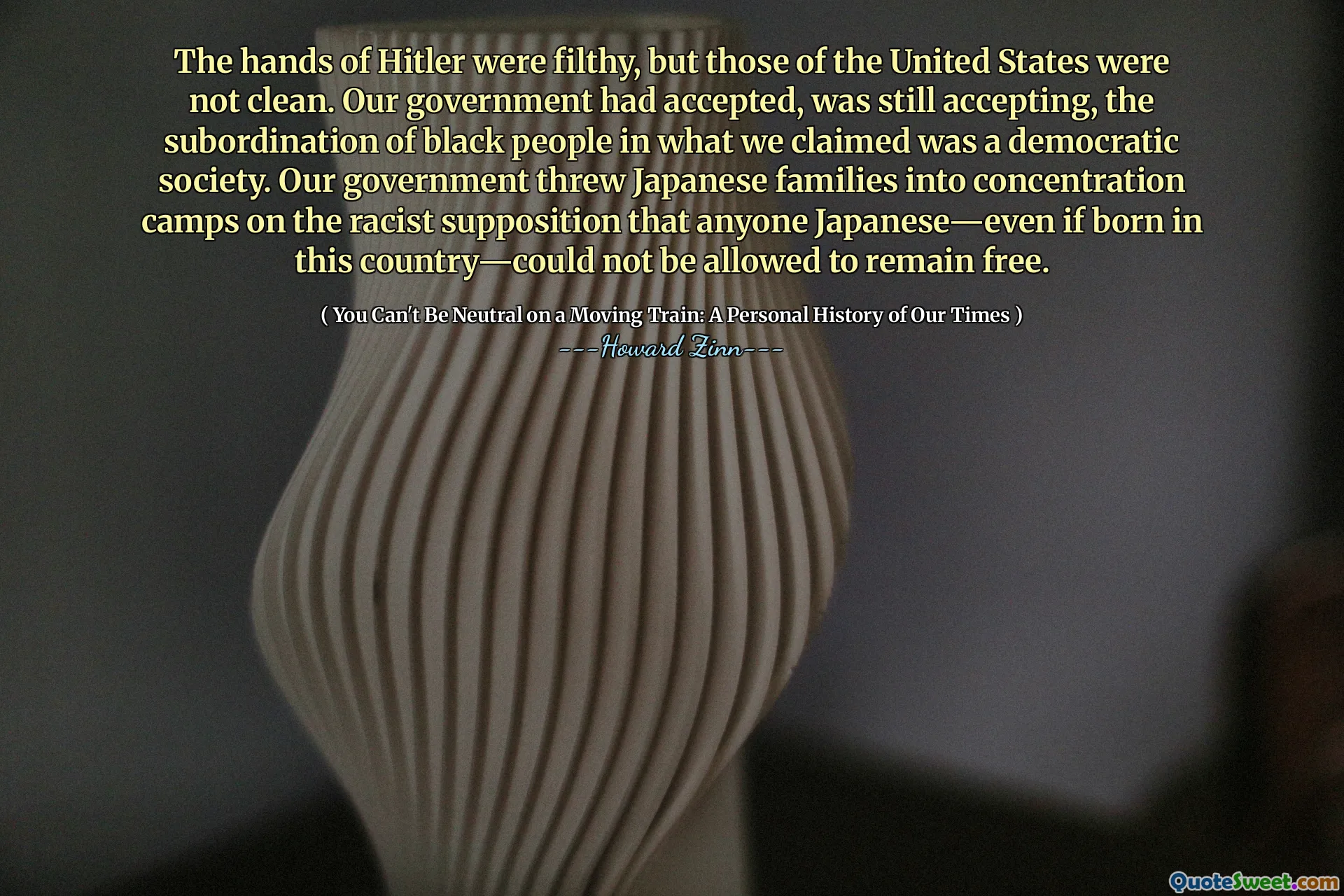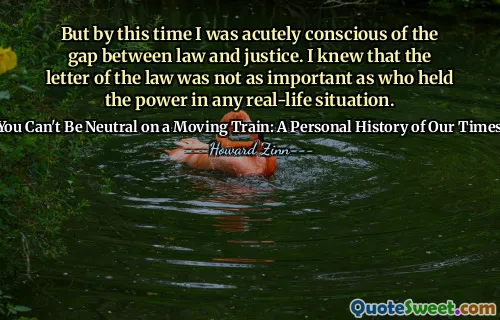
The hands of Hitler were filthy, but those of the United States were not clean. Our government had accepted, was still accepting, the subordination of black people in what we claimed was a democratic society. Our government threw Japanese families into concentration camps on the racist supposition that anyone Japanese—even if born in this country—could not be allowed to remain free.
This quote confronts the uncomfortable truths about moral hypocrisy and systemic injustice in American history. It challenges the notion that moral purity is a standard uniquely held by externally condemned regimes like Nazi Germany. Instead, it highlights that the United States, often revered as a symbol of democracy and liberty, has also engaged in egregious acts driven by racism and prejudice. The subjugation of Black people through segregation, disenfranchisement, and violence reflects a long history of racial inequality that complicates America's self-image. Similarly, the internment of Japanese Americans during World War II stands as a stark reminder of how fear and racial prejudice can override constitutional protections and basic human rights. These acts were justified at the time as security measures but were rooted in racial stereotypes and hysteria. This acknowledgment compels us to critically examine the narratives of moral superiority often associated with nations and question how such injustices can occur under the guise of national interest or security. It pushes us toward understanding that moral integrity is complex, and national narratives frequently gloss over their darker chapters. Recognizing these truths is essential in striving toward a more genuine democracy and ensuring that history's lessons inspire real change, rather than superficial justifications for ongoing injustice.








